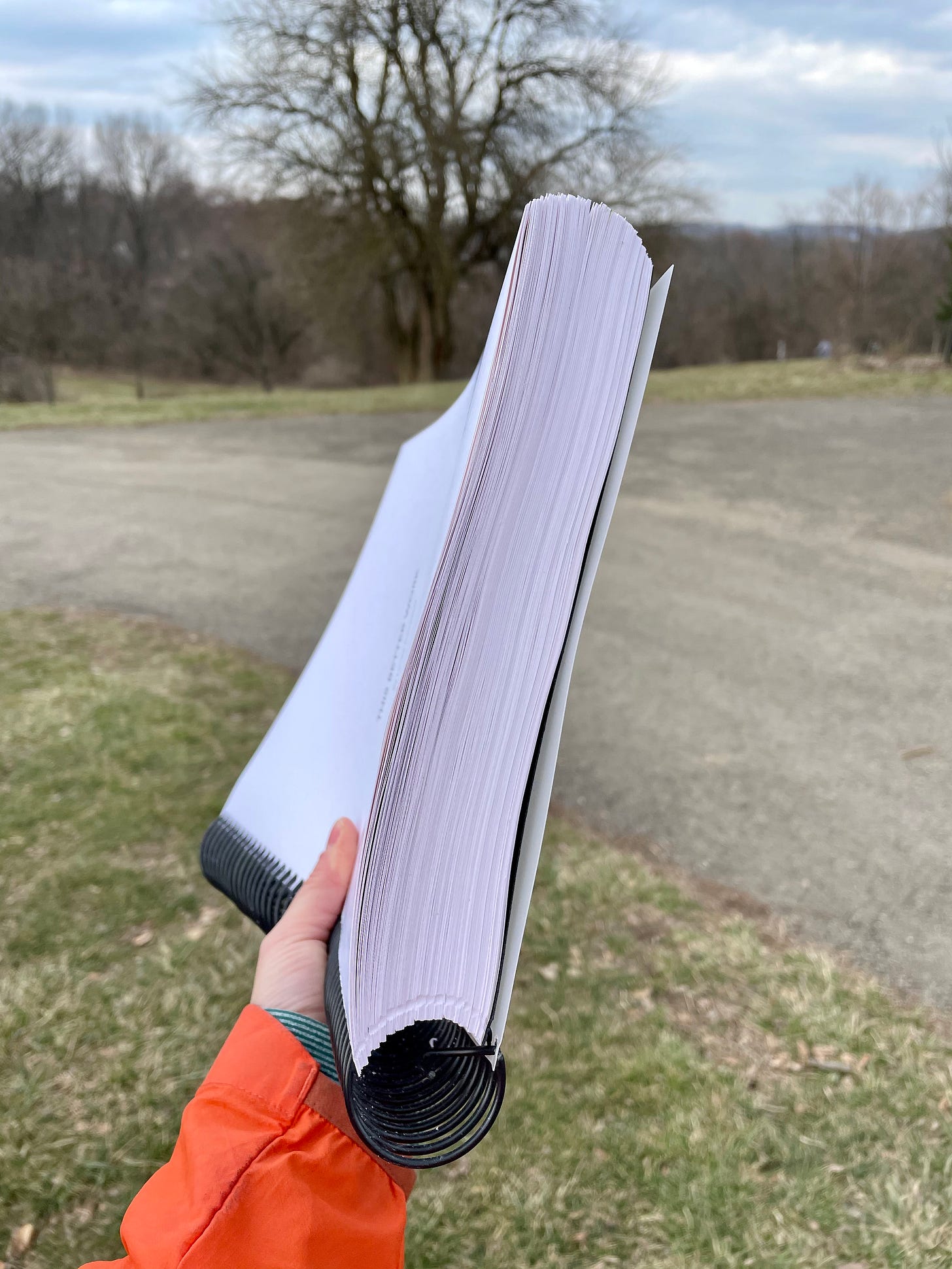
I'm a creature of habit. I don't like to believe I am, but I am. And when I find a flow that works for me, I'm pretty damn productive.
I decided to write a book on April 28, 2020. That was 322 days ago.
I've been writing my whole life, but writing a book is a completely different thing. It’s an absolute beast compared to anything else I’ve written. 40,000+ words seemed extremely overwhelming, and I knew it would be a serious time commitment.
To pull this off, I’d have to make a few changes in my life. I wouldn’t just have to make changes, I’d have to stick to them. The challenge here was to create and stick to a long-term change.
As I started to assess my options, highlights from an episode of Hidden Brain starting coming back to me. Creature of Habit (first aired Dec. 30, 2019).
At the beginning of the year, many of us make resolutions for the months to come. We resolve to work out more, procrastinate less, or save more money. Though some people stick with these aspirations, many of us fall short. This week, psychologist Wendy Wood shares what researchers have found about how to build good habits — and break bad ones.
According to the podcast, I needed to do a couple of things to complete my book.
Form a small daily habit to chip away at the giant goal.
I'm writing my book alongside a bunch of other authors through Scribe Media. I’ve loved the community aspect of this experience (more below). During the kickoff workshop, the Scribe editors gave us this advice: “Set a daily goal.” Their recommendations:
- Block off an hour a day for writing.
- Write a minimum of 250 words a day.
250 words is not a lot to write every day. It's less than two tweets. And that's the point.
It’s the idea that if you make the steps small enough, they’ll become too small to fail. And as research has shown, starting small makes new habits more likely to stick. - New York Times, How Small Habits Can Lead To Big Changes
Some days I wrote 250 words. Other days I wrote 1,250 words. Some days I wrote zero words. Not many, but it happened.
Create accountability.
If I say it out loud, I'm doing it. That’s how it works with me, so when I decided to write a book, I posted my commitment online for friends and family to see. It was my hope they’d hold me accountable, cheer me on, check in on me, etc.
And they did.
Certain friends poked, pushed, and encouraged me. Some of the people who did this weren’t technically my friends (they are now). They were my fellow authors.
I hang out with these people every Tuesday afternoon. Scribe editors answer our questions and give us advice. It’s author therapy.
I love these calls. I’ve dialed in almost every single week since I started writing. They’re a highlight of my week now.
Remove any friction that may get in the way of completing the daily habit.
Most people think the way to change behavior is through self-control. Willpower is the key to success.
That might not be the case actually. Creating and sticking to habits may be more heavily rooted in eliminating friction.
Remove the friction. Form the habit.
The people who are best at forming habits aren't the people who are good at resisting opening the refrigerator to eat the cake. They're just the people who don't have cake in the refrigerator.
My main friction in life is life. The only way I was going to do this every day is if I did it first thing in the morning. Crossing it off the list first took away all of the decision making. I wasn't spending time trying to prioritize writing against something else.
Celebrate the wins. Always!
This leads me to today. The manuscript is done. I printed out the vomit draft, so I printed out this version too.
I’m proud of this accomplishment and I want to celebrate it.
The celebration part didn’t come from the podcast. I’m just always looking for a reason to party 🎉
I’ve learned so much through this process. I had no idea how hard it was going to be, but I’m so glad I did it. You have to be naive. I say it all the time.
And yes, it's in the book.
Until next time,
✌️Lynsie




